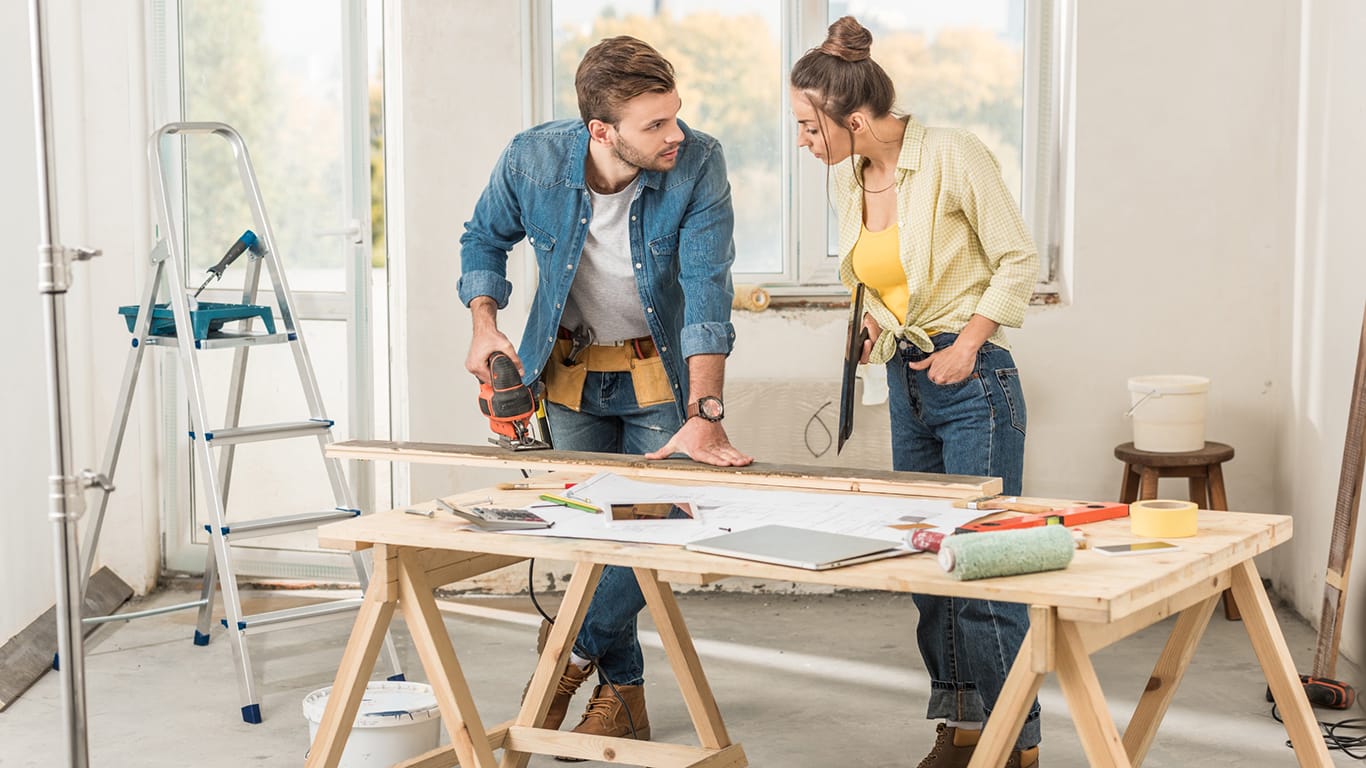When a person hears the term “fixer-upper,” their first instinct may be to recoil at the thought of a dilapidated property needing costly renovations and garish, outdated tiling and cabinets. This stigma, while common, shrouds the positive financial and creative possibilities for homebuyers, especially when working within a set budget and envisioning a cosmetic end goal for one’s home. As a licensed REALTOR® with RE/MAX Fine Properties, I am bringing clarity to the confusion surrounding what purchasing a fixer-upper or investing in a fixer-upper might entail for your wallet, and why doing so can save you headaches in 2024.
LEARN MORE: 3 things every seller needs to know right now about residential real estate
Avoid the hectic bidding wars of 2024.
Contrary to gloomy sentiments about interest rates on social media and housing reports, if you are considering purchasing a home, you should buy right now or soon. Homebuyers and current homeowners can likely attest to the competitive nature of purchasing a home in Phoenix, which is due to an inventory shortage that is struggling to meet overwhelming buyer demand. According to a search performed on Dec. 6 using the Arizona Residential Multiple Listing Service database, there are roughly 12,700 single family residences on the market right now within the Phoenix metropolitan area, and of these homes, an estimated 70% are closing with seller concessions to pricing. Economists are predicting that interest rates on homes should cool during the spring of 2024 and when this happens, thousands of additional homebuyers are predicted to compete for these scarce properties, ultimately sending home prices soaring. This flock to buy will lead people to desperately bid, sometimes impulsively and way above their budget. Homebuyers can skip this impending frenzy right now by investing in a lower-cost fixer-upper or older property within their budget. If in doubt, refinancing for a better interest rate later is also an option – as I like to say, “Marry the house, not the rate.”
You’ll want to renovate anyway.
When evaluating options before purchasing a home, determine your goals for the property itself. Are you envisioning a specific aesthetic achieved through construction and improvements, such as custom tiling, decorative cabinets, a customized kitchen space or an open floorplan for a living room? If so, shift your perspective to focus more on the ‘bones’ of the property, and the creative leeway you’ll have to restructure and decorate within your set budget. Purchasing a newly constructed home that is ready to move into, only to gut it is akin to lighting money on fire. Fixer-uppers do tend to be older houses but are overall cheaper and experience less buyer competition compared to their ready-to-buy counterparts. Your agent can take the financial guesswork out of home improvements by connecting you with trusted contractors who can work within your budget to explore your options and bring your dream interior to reality.
Improvements build equity, and your agent can help.
Outside of making cosmetic improvements to a fixer-upper, homebuyers should consider that these properties are an excellent opportunity to invest and build home equity. After assessing a fixer-upper for its framework, I recommend connecting with your agent to discuss “big ticket” expenses. Repairing a leaky roof, old plumbing or a faulty air conditioning system are costly fixes, but the presence of such issues can be used as ammo to negotiate a lower buying price with the home seller. If you are hesitant about purchasing an older property or fixer-upper, your real estate agent can review the seller’s disclosure documents to check for defects on the property. If any portion of this disclosure is left blank, inquiring with the seller about possible undocumented issues with the home may also contribute to a lower buyout price. From there, make improvements incrementally – I recommend tackling the work from the ceiling down in this order: ceiling-level, lighting, cabinets and countertops, flooring, then concluding with new appliance installation.
Another aspect to consider about fixer-uppers and equity is the surrounding community, including nearby schools, amenities and retail options. Walk the neighborhood and talk to residents living nearby to get a pulse on the area. If you have children, visit nearby schools, evaluate its proximity to the property and the standard of the education offered. As you continue to make improvements and increase the value of your home, the quality of its surroundings and convenience can contribute to its appeal for future homebuyers. Over time, your home’s value may be equal to, or even exceed, the value of newer homes.
If you’re interested in connecting with an expert RE/MAX agent to discover how investing in a fixer-upper property can benefit your family’s lifestyle and financial goals, please visit https://www.fineprop.com/.
Author: Stacy Miller is a REALTOR® with RE/MAX Fine Properties. RE/MAX Fine Properties is a locally owned and operated full-service real estate brokerage with offices across Arizona. To learn more, visit www.fineprop.com.




